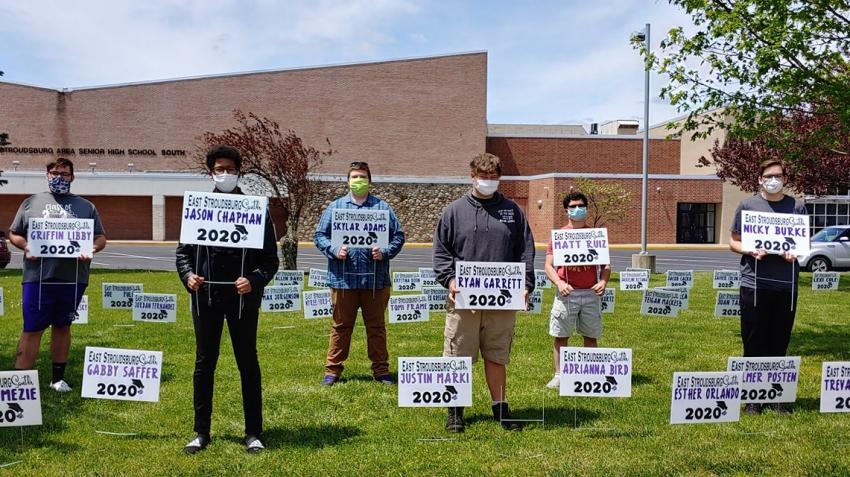
Education
No. 4 Vol. L 2013This edition of the UN Chronicle looks at the social impact of education as part of the third anniversary of the establishment of the United Nations Academic Impact. The articles, written by leading experts on education, examine issues such as the importance of educating young people about the UN; higher learning institutions and global citizen education; making academic research accessible; international mobility of Brazilian students; and education as the pathway towards gender equality.

Creating Our Future by Documenting Our Living History
The energy of the United Nations lies in the transformative power of ideas brought to life. This call to action has been answered by the East Stroudsburg Area School District in Pennsylvania, United States, which recognizes that despite mandated school closures, learning and education must never cease.

International Mobility of Students in Brazil
To encourage the internationalization of technology and innovation, there are currently many initiatives aimed at raising the intensity of international student and/or faculty mobility in Brazil.

The Contribution of the German Tertiary Education System towards furthering the United Nations Academic Impact Initiative
This article briefly reviews the German tertiary education system and illustrates how it contributes towards furthering the principles underlying the United Nations Academic Impact (UNAI) initiative.

The Journey of a Dental Surgeon into International Education
Internationalization is a powerful transformative tool that can influence the teaching, learning and research at a university. It is also a potent quality enhancement tool that can positively shape the graduate attributes of our students giving them knowledge, skills and competencies, not only in their chosen disciplines but also in the areas of cultural competence and global citizenship.

Education as the Pathway towards Gender Equality
Not being able to read or write is a significant barrier for underprivileged women, since this can lead to their failure to make use of even the rather limited rights they may legally have (to own land or other property, or to appeal against unfair judgment and unjust treatment).

Colleges and Collegiality-An International Imperative
The role of the good university is to enable us to understand more deeply how we can live plurally and tolerantly as one globalized world.

Daring in Higher Education, A Crazy Idea?
This article focuses on some crazy ideas from one new generation university in Bloemfontein, Free State Province, South Africa, called the Central University of Technology (CUT), Free State. It was the first time since the launch of UNAI that a UNAI-themed colloquium and a plenary panel discussion were held in Africa.
Making Academic Research Accessible-The Case of Research in Higher Education Internationalization
<p>What is the impact of a study abroad period for students on a personal and academic level? Does an exchange programme or an internationalized curriculum make graduates more employable and better able to understand the global social issues we are facing, in particular the eight United Nations Millennium Development Goals?</p>
What Type of Citizenship Education; What Type of Citizen?
Education for citizenship raises key questions—what is education for? What is the role of the school in developing positive attitudes amongst young people? How can controversial issues be raised in the classroom? How do we develop critical citizens?

Higher Learning Institutions and Global Citizen Education
Through rigorous scholarship—fundamental or applied—universities are in a unique position to contribute to the search for more effective management and a resolution of such transborder problems as cybersecurity and terrorism, climate change, and cross border migration, to cite only a few.

Teaching The UN Through Experiential Education
A long-standing and unique instrument that provides experiential learning opportunity for students, and addresses this kind of multifaceted and deeper impact, is the Model UN experience. Even before the creation of the United Nations, in the 1920s a group of students from Ivy League schools introduced the model league, which later morphed into the Model UN.
Walter-A Story of Resilience and Hope
Although education is a basic human right, young budding minds of refugees are robbed of this stimulating nutrition. Education empowers and gives much needed hope so that the total person can make a meaningful contribution to a world often starved of peace.
Is it still necessary to teach about the United Nations?
Is it still necessary to teach about the United Nations? Absolutely—now, perhaps more than ever. With a spiraling global population, the need to better inform and educate young people the world over about the United Nations represents an ongoing challenge that cannot go unheeded.
